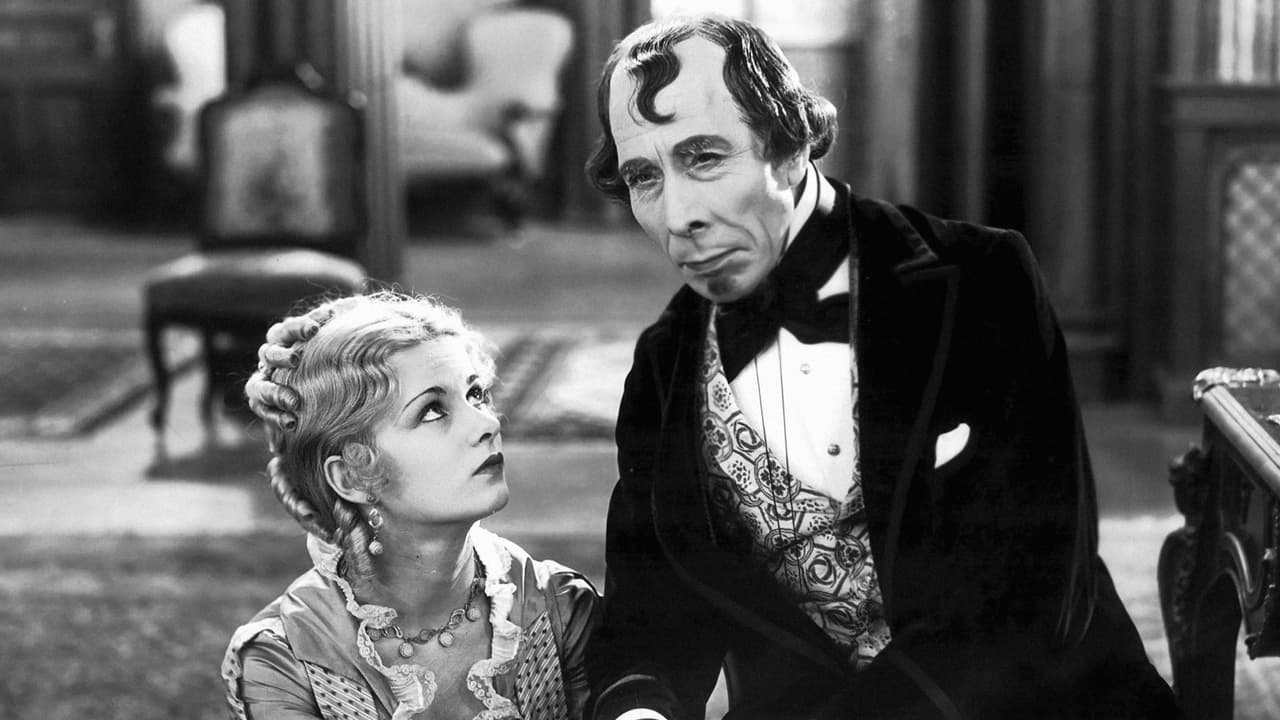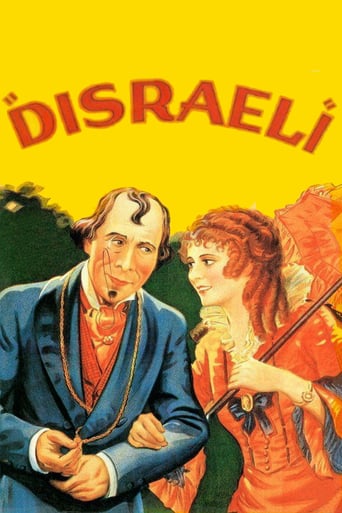

The greatest movie ever!
... View MoreA Disappointing Continuation
... View MoreTells a fascinating and unsettling true story, and does so well, without pretending to have all the answers.
... View MoreThe movie runs out of plot and jokes well before the end of a two-hour running time, long for a light comedy.
... View MoreIn this filmed stage play, Arliss enacts the celebrated British statesman as he outsmarts a glamorous spy (Doris Lloyd) working for Russia who is trying to disrupt Disraeli's attempts to arrange for Britain to purchase the Suez Canal. One must commit to listening very carefully to the dialogue and squinting earnestly at the images to work up any involvement in this time- tarnished strip of celluloid, so weak is the soundtrack and so murky are the visuals. If these efforts are made, some entertainment can be derived. Arliss commands attention with his hawklike features, extreme coiffure (a sort of pageboy style with a big curl plastered down the middle of his forehead) and theatrically trained diction. He performs this role which he had played on stage and in the silent era with energy and relish. His real-life wife, Florence, plays his wife here and seems to spend half of her screen time chuckling at her husband's utterances. Joan Bennett in the full bloom of late teenage loveliness does "British lady" very well as a noblewoman whom Disraeli takes under wing, as does the strapping Anthony Bushell as her love interest who also works as Disraeli's secretary and agent.
... View MoreStory of how British Prime Minister, Benjamin Disraeli, outwitted the Russians and was able to purchase the Suez Canal.Arliss won the Oscar for best actor. He was the first Jewish person to win the Academy Award. (I know the Oscars had been business for a mere 2 years.)Arliss showed comedic gifts in his Oscar-winning performance. His stalwart behavior in defense of England will always be an endearing quality. He was ably supported by his wife, Florence, and especially by Russian spy, Doris Lloyd. Joan Bennett did fine in her part of the girlfriend of an aide to Disraeli.Unfortunately, Vitograph's sound has not withstood the passing years. The film needs to be preserved with sound improvement.There are overtones of anti-Semitism in the film. It is never explained how Disraeli was able to outmaneuver Gladstone for the Prime Minister's position.The ending is really a miracle at its nicest.
... View MoreThis is one of the few very early talkies that is neither a musical nor an overly dull stage production. It is a fascinating look into a very brief episode in the professional life of British Prime Minister Benjamin Disraeli - specifically his effort in obtaining the Suez Canal for Great Britain. Arliss gives a well-deserved Academy Award winning performance as the prime minister, and he is so adept at dialogue and with conveying his mood with glances and small gestures and the pace of the film is so brisk that you hardly notice the 1929 movie camera that cannot budge an inch. In this short 90 minute film Disraeli plays matchmaker, mentor, breaker of a spy ring, and master dealmaker with a sophistication of dialogue and acting that is rarely seen in films for another ten years. Particularly moving is the portrayal of Disraeli's relationship with his wife, played by Arliss' actual wife to whom he was wed in 1899 until his death. The mutual respect and tenderness the couple show for one another is quite touching.The audio and video of the VHS version of this film is really in bad shape. There is very bad background hissing in the audio which can make the dialogue - so important to the development of the plot - sometimes difficult to understand. The video doesn't have much scratchiness to it, but there are periods of time when blurry areas will appear on the screen that can be quite distracting, and the contrast is quite poor. However, this film is quite enjoyable 80 years after it was made. Seeing that it is much more than a rickety curio, it would be nice to see Warner Home Video clean up the film technically as much as is possible and put it on DVD.
... View MoreI must second the comments about Mr. Arliss. He is magnificent. I eat up everything of his I can find. I highly recommend The Iron Duke, about the Duke of Wellington. It's really fun to compare it with Disraeli. Actually, George Arliss plays George Arliss in both, but then Barrymore and Bette Davis (whom, by the way, Arliss discovered) were always playing themselves, too. The point is, that we love watching them play themselves. Arliss shops for roles that fit him. He doesn't try to shoehorn himself into a role. I think I get as much of a kick out of Arliss's banter, his small talk, as his great declamations. He really is great with one-liners, which come off in a completely natural way, creating the illusion that we really are a fly on the wall, witnessing great historical figures on an intimate level. For example, the way he formally introduces to others his office assistant, whom he knows to be a spy: "This is Mr. Foljambe such a hard worker." Another wonderful thing about Disraeli is something others have also touched on here. This was one of the first talkies, and acting was still informed by the flamboyant physical gestures that were the language of silent cinema and necessities of the stage, where actors had to project themselves without benefit of a big screen's projecting them with closeups. We can see this especially in the male ingénue part played by Anthony Bushell, whose arm across the chest was meant to convey ardor but which now comes across as corny. But I enjoy seeing this as an artifact, like listening to music of the period. In the case of Mr. Arliss, the staginess is indeed transcended. In Mr. Arliss we are lucky in having preserved one of the great stage actors of the era, a window into the a world when the theatre was THE great medium and when stage actors were THE great actors. So Disraeli is not only a great entertainment but a great document, of both its subject and of its own era.
... View More